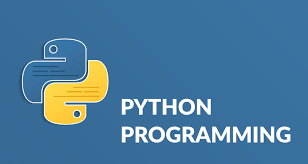Course information
Python Full Stack: Learn to Build, Deploy and Operate Python Applications
While the term is slightly ambiguous, Full-Stack Python usually refers to every code used in developing a web application (including both back-end and front-end technologies) that was written in Python
You're knee deep in learning Python programming. The syntax is starting to make sense. The first few ahh-ha! moments hit you as you learn to use conditional statements, for loops and classes while coding with the open source libraries that make Python such an amazing programming ecosystem.
Now you want to take your initial Python knowledge and make something real, like a web application to show off to friends or sell as a service to customers. That's where Full Stack Python comes in. You have come to the right place to learn everything you need to create, deploy and operate Python-powered applications.
Full Stack Python is an open source book that explains technical concepts in plain language. Read everything online for free or purchase the Supporter's Edition for nicely-formatted eBook (PDF, EPUB, MOBI) versions. This guide branches out on topic because your learning requirements depend on what you're working on. Choose a topic from the links below or view the full table of contents to see even more subjects you can learn.
Python Course Content
Core Python
Introduction to Script
What is Script, program
Types of Scripts
Difference between Script and Programming Languages
Features and Limitation of Scripting
Types of programming Language Paradigms
Introduction to Python
What is Python
Why Python
Who Uses Python
Characteristics of Python
History of Python
What is PSF
Python Versions
How to Download and Install Python
Install Python with Diff IDEs
Features and Limitations of Python
Python Applications
Creating Your First Python Program
Printing to the Screen
Reading Keyboard Input
Using Command Prompt and GUI or IDE
Python Distributions
Different Modes in PYTHON
Execute the Script
Interactive and Script Mode
Python File Extensions
SETTING PATH IN Windows
Clear screen inside python
Learn Python Main Function
Python Comments
Quit the Python Shell
Shell as a Simple Calculator
Order of operations
Multiline Statements
Quotations in Python
Python Path Testing
Joining two lines
Python Implementation Alternatives
Sub Packages in Python
Uses of Python in Data Science, IoT
Working with Python in Unix/Linux/Windows/Mac/Android..!!
PYTHON NEW IDEs
PyCharm IDE
How to Work on PyCharm
PyCharm Components
Debugging process in PyCharm
PYTHON Install Anaconda
What is Anaconda
Coding Environments
Spyder Components
General Spyder Features
Spyder Shortcut Keys
Jupyter Notebook
What is Conda and Conda List
Jupyter and Kernels
What is PIP
Variables in Python
What is Variable
Variables and Constants in Python
Variable,Variable names and Value
Mnemonic Variable Names
Values and Types
What Does “Type” Mean
Multiple Assignment
Python different numerical types
Standard Data Types
Operators and Operands
Order of Operations
Swap variables
Python Mathematics
Type Conversion
Mutable Versus Immutable Objects
String Handling
What is string
String operations and indices
Basic String Operations
String Functions, Methods
Delete a string
String Multiplication and concatenation
Python Keywords, Identifiers and Literals
String Formatting Operator
Structuring with indentation in Python
Built-in String Methods
Define Data Structure
Data Structures in PYTHON
Python Operators and Operands
Arithmetic, Relational Operators and Comparison Operators
Python Assignment Operators
Short hand Assignment Operators
Logical Operators or Bitwise Operators
Membership Operators
Identity Operators
Operator precedence
Evaluating Expressions
Python Conditional Statements
How to use “if condition” in conditional structures
if statement (One-Way Decisions)
if .. else statement (Two-way Decisions)
How to use “else condition”
if .. elif .. else statement (Multi-way)
When “else condition” does not work
How to use “elif” condition
How to execute conditional statement with minimal code
Nested IF Statement
Python LOOPS
How to use “While Loop” and “For Loop”
How to use For Loop for set of other things besides numbers
Break statements, Continue statement, Enumerate function for For Loop
Practical Example
How to use for loop to repeat the same statement over and again
Break, continue statements
Learning Python Strings
Accessing Values in Strings
Various String Operators
Some more examples
Python String replace() Method
Changing upper and lower case strings
Using “join” function for the string
Reversing String
Split Strings
Sequence or Collections in PYTHON
Strings
Unicode Strings
Lists
Tuples
buffers
xrange
Python Lists
Lists are mutable
Getting to Lists
List indices
Traversing a list
List operations, slices and methods
Map, filter and reduce
Deleting elements
Lists and strings
Python TUPLE
Advantages of Tuple over List
Packing and Unpacking
Comparing tuples
Creating nested tuple
Using tuples as keys in dictionaries
Deleting Tuples
Slicing of Tuple
Tuple Membership Test
Built-in functions with Tuple
Dotted Charts
Python Sets
How to create a set
Iteration Over Sets
Python Set Methods
Python Set Operations
Union of sets
Built-in Functions with Set
Python Frozenset
Python Dictionary
How to create a dictionary
PYTHON HASHING
Python Dictionary Methods
Copying dictionary
Updating Dictionary
Delete Keys from the dictionary
Dictionary items() Method
Sorting the Dictionary
Python Dictionary in-built Functions
Dictionary len() Method
Variable Types
Python List cmp() Method
Dictionary Str(dict)
Python Functions
What is a function
How to define and call a function in Python
Types of Functions
Significance of Indentation (Space) in Python
How Function Return Value
Types of Arguments in Functions
&
Course information
- Course: Python Full Stack
- Company: ArchiTech IT
- Course Content: Available
- Course Duration: 40-45 Days
- Session Recording: Lifetime Access
 ArchiTech IT
ArchiTech IT